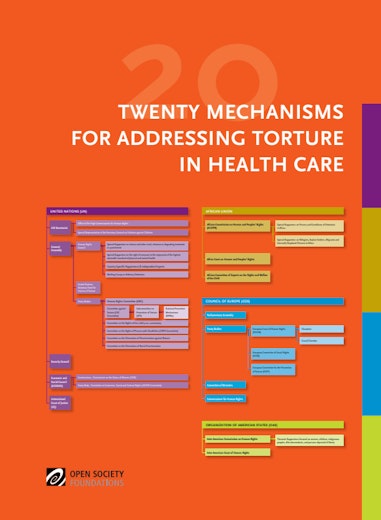Health care settings should be places where human rights are realized. Yet, across the world, health systems often serve as venues of punishment, coercion, and violations of basic human rights, sometimes amounting to torture or cruel, inhuman, and degrading treatment. This abuse is especially prevalent in the care of socially marginalized groups—people living with HIV, ethnic minorities, sexual and gender minorities, people who use drugs, and people with intellectual disabilities or mental health problems.
There are many national, regional, and international mechanisms designed to promote government accountability and prevent torture and cruel, inhuman, and degrading treatment, yet these mechanisms are rarely applied to health facilities. This manual describes 20 anti-torture mechanisms from the United Nations and African, European, and Inter-American human rights systems and provides illustrative examples on how to use these mechanisms to fight torture in health settings. For each mechanism, the manual explores mandate, procedure, possibilities for engagement, and prior work on torture in health care. The manual also includes a glossary of basic human rights terms.
This manual is designed as a resource for organizations that advocate against abuse in health care—including international, regional, and national human rights organizations; groups focused on particular health care abuses; anti-torture groups; and the treaty bodies themselves.
Download
-
Twenty Mechanisms for Addressing Torture in Health Care (479.78 Kb pdf file)
Download the 124-page publication.
